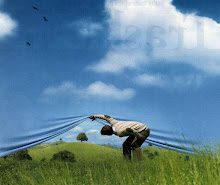\buh-NEFF-i-suhns\, noun:
1. The practice of doing good; active goodness, kindness, or charity.
2. A charitable gift or act.
~~~~~~~
“No wise person would ever do evil voluntarily.”
The paragraph preceding this statement, as mentioned in chapter 2, entails Socrates’ beliefs on the necessity of self-knowledge. It is difficult, he says, no only to have a full life, but to act respectfully, morally and ethically without self-knowledge.
I think his thoughts on ethics are correct. While other discussions can be had about what really makes a happy life (and if the intellectually life would be happy for all), exploring morality suggest to me that investigation is an absolute and persistent necessity for it to function.
First of all, I must construct a platform—ethics is a self-governed set of principles concerning interaction and the self. Whether or not God exists is irrelevant, as his enforcements and punishments are impossible to perceive in the natural world—in other words, even if he’s the one setting all the rules, we’re the ones choosing to follow, needing to explore and figuring out them. With or without God, we personally experience moral dilemmas, determine what hurts and harms, and act (or do not act) accordingly. If at the end of the day we believe in an absolute moral principle set by a higher authority, we have still delineated the details of that authority in much the same manner (provided we are all thoughtful) as a secular ethicist.
With that out of the way, I agree with Socrates that to construct an active, viable and compassionate morality, we must give thought to discover what helps and what harms. We must know what effect our actions have on others, and search inside ourselves unflinchingly to ensure we know why we act as we do. A strong sense of self-identity will allow conviction in times of moral indecision.
So in his statement, Socrates is not merely saying that an intelligent person would do no harm, but that to be an intelligent person, one must have a strong sense of self, and a similarly strong sense of morality. Wisdom entails a sort of moral exploration—it is departed from mere knowledge, and instead rings of a fuller intelligence, a thoughtful parsing of both natural details and human interaction—thoughtful both in observation and in compassion. If the word were knowledge or intelligence, I would say its colloquial term cannot be stretched, but I think the word wise still rings true in this manner.
Monday, September 22, 2008
Subscribe to:
Post Comments (Atom)


No comments:
Post a Comment